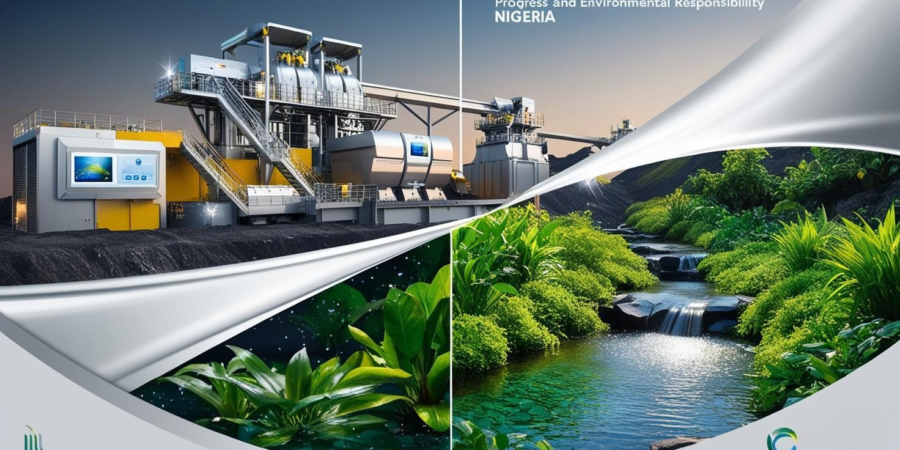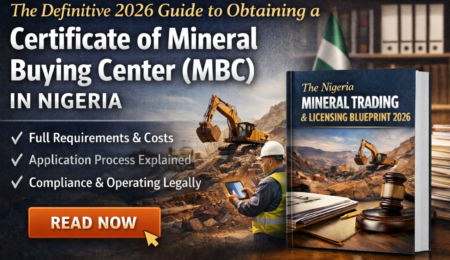Introduction: Beyond Extraction: A New Era of Responsible Mining for Nigeria’s Prosperity
Nigeria’s rich mineral resources hold immense potential for economic growth, a vital engine for national development. However, the traditional approach to mining has often come at a significant environmental and social cost. The narrative is shifting. A new era of responsible resource management is dawning – one where economic prosperity is intrinsically linked to environmental stewardship and social well-being. Sustainable mining practices are not just an ethical imperative; they are the key to unlocking long-term value and building a resilient future for Nigeria.
The Imperative of Sustainability: Why Nigeria Must Choose a Greener Path
The consequences of unsustainable mining are stark: land degradation, water pollution, biodiversity loss, and social unrest. These negative impacts can undermine the very economic benefits sought from resource extraction. Sustainable mining offers a different vision – one where environmental protection and economic progress go hand-in-hand. This involves adopting practices that minimize environmental damage, ensure worker safety, engage local communities, and contribute to long-term socio-economic development.
According to a 2020 report by the Nigerian Extractive Industries Transparency Initiative (NEITI), while the mining sector contributed approximately 0.3% to Nigeria’s GDP, the environmental and social costs associated with unregulated artisanal and small-scale mining (ASM) have been significant, often outweighing the direct economic benefits in localized areas.
Pillars of Sustainable Mining in Nigeria: A Concrete Framework for Action
Sustainable mining isn’t a vague concept; it’s built on concrete principles and practices:
- Environmental Stewardship: Minimizing Our Footprint:
- Land Rehabilitation: Implementing comprehensive plans for the restoration of mined-out areas, returning land to productive use for agriculture, forestry, or conservation.
- Water Management: Employing closed-loop water systems, preventing water pollution, and treating mine drainage effectively.
- Biodiversity Conservation: Conducting thorough environmental impact assessments (EIAs) and implementing measures to protect and mitigate impacts on local flora and fauna.
- Waste Management: Adopting best practices for the storage, treatment, and disposal of mining waste, including exploring opportunities for waste valorization.
- Social Responsibility: Empowering Communities and Protecting Rights:
- Community Engagement: Establishing transparent and inclusive consultation processes with local communities throughout the project lifecycle, respecting their rights and addressing their concerns.
- Fair Compensation and Resettlement: Providing fair compensation for land acquisition and implementing responsible resettlement programs where necessary, ensuring livelihoods are restored or improved.
- Local Content Development: Prioritizing the employment of local people, sourcing goods and services locally, and investing in skills development within the community.
- Worker Safety and Health: Implementing stringent safety protocols and providing adequate training and protective equipment to ensure a safe and healthy working environment.
- Economic Viability and Transparency:
- Efficient Resource Extraction: Employing modern technologies and techniques to maximize resource recovery and minimize waste.
- Value Addition: Encouraging local processing and beneficiation of minerals to create more jobs and increase the economic value retained within Nigeria.
- Revenue Transparency and Accountability: Ensuring transparent reporting of revenues generated from mining activities and their contribution to national and sub-national development.
The Dangote Cement Plc mining operations in Nigeria provide a verifiable example of large-scale land rehabilitation. Their documented efforts include the progressive restoration of quarry sites for agricultural purposes and reforestation initiatives. Environmental audit reports, often publicly available as part of their sustainability reporting, can verify these claims.
Empowering Nigerian Entrepreneurs for a Sustainable Mining Future:
The transition to sustainable mining practices in Nigeria presents significant business opportunities for Nigerian entrepreneurs:
- Environmental Consulting and Services: Providing expertise in EIAs, environmental monitoring, waste management solutions, and land rehabilitation.
- Supply of Sustainable Mining Technologies: Offering innovative and environmentally friendly mining equipment and technologies.
- Community Engagement and Social Impact Assessment: Facilitating effective communication and building trust between mining companies and local communities.
- Waste Valorization and Circular Economy Solutions: Developing businesses that can process and repurpose mining waste streams.
- Renewable Energy Solutions for Mining Operations: Providing and installing solar, wind, and other renewable energy sources to reduce the carbon footprint of mining activities.
The Call to Action: Let’s Build a Sustainable Mining Legacy for Nigeria!
The choice is clear. Nigeria can continue down a path of resource extraction that depletes the environment and marginalizes communities, or it can embrace a future where mining fuels genuine and sustainable economic growth. This requires a concerted effort from the government, mining companies, local communities, and entrepreneurs. By prioritizing responsible practices, investing in innovation, and holding ourselves accountable, we can unlock the true potential of Nigeria’s mineral wealth for the benefit of all.
Conclusion: A Future Forged in Responsibility
Sustainable mining in Nigeria is not an oxymoron; it is a tangible and achievable goal. By embracing a holistic approach that balances economic imperatives with environmental and social responsibility, Nigeria can forge a future where its mineral wealth contributes to lasting prosperity for generations to come. The time to act is now. Let’s dig responsibly and build a legacy we can all be proud of.
READ Also:
The Ultimate Guide to Starting a Mining Company in Nigeria
Need a Mining License or Mineral Trade Permit in Nigeria? Here’s How We Can Help





Leave a Reply